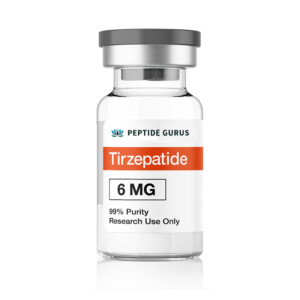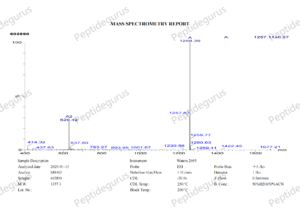In the realm of research chemicals, distinguishing between reputable and questionable manufacturers is crucial for both safety and efficacy. Reputable manufacturers adhere to strict quality control standards, ensuring their products are pure and accurately labeled. On the other hand, questionable manufacturers often cut corners, leading to potentially dangerous and ineffective chemicals. This article delves into the differences between these two types of manufacturers, providing insights into how to identify and choose the right one.
Reputable research chemical manufacturers invest heavily in quality assurance processes. They employ advanced analytical techniques such as high-performance liquid chromatography (HPLC) and gas chromatography-mass spectrometry (GC-MS) to verify the purity and composition of their products. These companies also maintain comprehensive documentation and batch records, ensuring traceability and accountability at every step of production. This level of diligence helps to minimize the risk of contamination and ensures that researchers receive chemicals that meet their exact specifications.
In contrast, questionable research chemical manufacturers often lack rigorous quality control measures. They may use substandard raw materials, inadequate purification methods, or insufficient testing protocols. As a result, their products may contain impurities, incorrect concentrations, or even entirely different substances than what is advertised. This not only jeopardizes the integrity of scientific research but also poses significant health risks to researchers and end-users.

One of the key indicators of a reputable research chemical manufacturer is transparency. These manufacturers are open about their production processes, quality control measures, and testing results. They provide detailed certificates of analysis (COAs) for each batch of chemicals, allowing customers to verify the product’s purity and composition. Additionally, reputable manufacturers are often willing to answer questions and provide additional information upon request, demonstrating their commitment to customer satisfaction and safety.
Questionable manufacturers, on the other hand, often lack transparency. They may provide vague or incomplete information about their products, making it difficult for customers to assess their quality. In some cases, these manufacturers may even falsify COAs or other documentation to create the illusion of quality. This deceptive practice can lead to serious consequences, as researchers may unknowingly use impure or mislabeled chemicals in their experiments.
Another important factor to consider when evaluating research chemical manufacturers is their reputation within the scientific community. Reputable manufacturers often have a long-standing history of providing high-quality products and excellent customer service. They may be endorsed by respected institutions, researchers, and industry organizations. Additionally, these manufacturers often have positive reviews and testimonials from satisfied customers, further validating their credibility and reliability.
In contrast, questionable manufacturers may have a history of complaints, negative reviews, or even legal issues. They may be known for providing inconsistent or substandard products, poor customer service, or engaging in unethical business practices. Researchers should be wary of manufacturers with a questionable reputation, as their products may not meet the necessary standards for scientific research.
One way to identify reputable research chemical manufacturers is to look for industry certifications and accreditations. Reputable manufacturers often hold certifications from recognized organizations such as the International Organization for Standardization (ISO) or the Good Manufacturing Practice (GMP) guidelines. These certifications indicate that the manufacturer adheres to strict quality control standards and follows best practices in production and testing.
Questionable manufacturers, on the other hand, may lack these certifications or provide counterfeit documents. Researchers should verify the authenticity of any certifications and accreditations claimed by a manufacturer, as this can be a key indicator of their commitment to quality and safety.
Customer support and communication are also important factors to consider when choosing a research chemical manufacturer. Reputable manufacturers typically offer responsive and knowledgeable customer support, helping researchers with product inquiries, technical issues, and order management. They may also provide educational resources, such as product guides, safety data sheets, and application notes, to assist researchers in using their products effectively and safely.
Questionable manufacturers, in contrast, may offer limited or unhelpful customer support. They may be difficult to contact, slow to respond, or unable to provide accurate information about their products. This lack of support can be frustrating for researchers and may indicate a lack of commitment to customer satisfaction and safety.

Pricing is another factor to consider when evaluating research chemical manufacturers. While reputable manufacturers may charge higher prices due to their investment in quality control and customer support, the cost is often justified by the reliability and safety of their products. Researchers should be cautious of manufacturers offering significantly lower prices, as this may indicate cost-cutting measures that compromise product quality.
Questionable manufacturers may use low prices to attract customers, but the potential risks associated with their products can far outweigh the initial cost savings. Researchers should prioritize quality and safety over price when selecting a research chemical manufacturer, as the consequences of using substandard chemicals can be severe.
Shipping and handling practices are also important considerations when choosing a research chemical manufacturer. Reputable manufacturers use secure and reliable shipping methods to ensure that their products arrive in good condition and within the specified time frame. They may also provide tracking information and offer guarantees or insurance for lost or damaged shipments.
Questionable manufacturers, on the other hand, may use unreliable shipping methods or fail to provide adequate packaging, leading to delays, damage, or loss of products. Researchers should inquire about a manufacturer’s shipping and handling practices before placing an order to ensure that their chemicals will be delivered safely and on time.
Another crucial aspect to consider is the manufacturer’s commitment to regulatory compliance. Reputable research chemical manufacturers adhere to all relevant regulations and guidelines, ensuring that their products are legally compliant and safe for use. They may also stay up-to-date with changes in regulations and industry standards, demonstrating their dedication to maintaining high-quality products.
Questionable manufacturers, however, may disregard regulatory requirements or engage in illegal practices, such as selling banned or controlled substances. Researchers should verify a manufacturer’s compliance with relevant regulations and avoid those with a history of legal or regulatory issues.
The availability of technical support and expertise is another important factor when choosing a research chemical manufacturer. Reputable manufacturers often employ experienced scientists and technical experts who can provide valuable insights and assistance with product selection, application, and troubleshooting. This level of support can be particularly beneficial for researchers working with complex or novel chemicals.
Questionable manufacturers, in contrast, may lack the technical expertise and support needed to assist researchers effectively. This can lead to difficulties in using their products correctly and safely, potentially compromising the integrity of scientific research.
Finally, researchers should consider the manufacturer’s overall commitment to ethical business practices. Reputable research chemical manufacturers operate with integrity, transparency, and a focus on customer satisfaction. They prioritize the safety and well-being of their customers and the broader scientific community, ensuring that their products meet the highest standards of quality and reliability.
Questionable manufacturers, on the other hand, may engage in unethical practices such as false advertising, price gouging, or exploiting vulnerable customers. Researchers should be cautious of manufacturers with a history of unethical behavior and prioritize those with a demonstrated commitment to ethical business practices.
All products on this site are for Research, Development use only. Products are Not for Human consumption of any kind.
The statements made within this website have not been evaluated by the US Food and Drug Administration or HEALTH CANADA. The statements and the products of this company are not intended to diagnose, treat, cure or prevent any disease.
PeptideGurus is a chemical supplier. PeptideGurus is not a compounding pharmacy or chemical compounding facility as defined under 503A of the Federal Food, Drug, and Cosmetic act. Peptide Sciences is not an outsourcing facility as defined under 503B of the Federal Food, Drug, and Cosmetic act.
PeptideGurus is a leading supplier of American-made research peptides, offering top-quality products at competitive prices. With a focus on excellence and customer service, they ensure a secure and convenient ordering process with global shipping.
CONTACT